Education
Australian varsities admit over 10,000 Nigerian students in 4 years – Official

Australian varsities admit over 10,000 Nigerian students in 4 years – Official
Mr Matthew Mechan, Deputy High Commissioner, Australia, Australian High Commission, says not less than 10,000 Nigerian students have been given admissions in Australian universities between 2015 and 2019.
According to him, the process went seamlessly before the coronavirus (COVID-19) pandemic interruptions.
Mechan said this on Saturday at the country’s ongoing education fair in Lagos.
The two-day event, which started with a gala night on Friday, was organised to celebrate and strengthen educational links between Nigeria and Australia.
It was also to promote opportunities offered by Australia’s tertiary education sector to Nigerian students.
The deputy head of mission told the News Agency of Nigeria (NAN) that the study fair was stalled by the pandemic, noting that the event was the first ever, since 2019, in the post COVID 19 era.
Read Also: Gov. Sani welcomes release of student abducted since 2021
Mechan said the study fair was a relaunch aimed at adopting a wholistic approach toward closing the vacuum created by the pandemic for better ties with Nigeria.
He added that Australia had produced several successful graduates who returned to Nigeria and were making positive impacts, developing various sectors.
“I recall in 2015, that year we only had 400 people, but after our first fair, we added 1,000 new students. So, we got up to 1,400 students in a space of one year.
“And that slowly grew over time with a couple of hundreds each year.
“So, I guess if you pull all those numbers together, I will think probably since 2015 we will be getting not less than 10,000 Nigerians who have had the chance to study in Australia,” he said.
He noted that Australia had a target of restoring the growth index for more Nigerian students to study in Australia’s adventurous and relaxed learning environment.
“If we can get back to adding a couple of more hundreds of students each year, that will be great. We know that we offer something incredibly different from other countries,” he said.
He urged Nigerians who want different kind of quality education in a relaxed environment to consider Australia, adding that it was a fun place to live and study.
“Our lifestyle is very different, it is very relaxed. We are a nice and warm country.
“We have unique wildlife and great lifestyle, by the beach or things like that, that maybe you don’t get in those other countries, which are a bit colder,” he said.
According to him, consistently, Australian cities like Melbourne had been rated first or second most livable cities on the planet by the Economist for the last decade.
“The High Commission itself has been around since independence but for the Education Fair, specifically we actually did the first one back in 2015 and we were doing them once a year until 2019 and unfortunately it got stopped,” said Mechan.
NAN reports that the meeting had in attendance representatives of Australian universities, key stakeholders, Nigerian educational institutions and two federal lawmakers.
Mr Mohammed Bassi, House Committee Chairman, Nigerian-Australian
Parliamentary Friendship Group in the House of Representatives, commended the organisers of the fair and the networking meeting, describing it as a good development.
Bassi, who represents a Federal Constituency comprising four Local Governments in Adamawa, however, urged the Australian government to also allow its citizens study in Nigeria to improve the friendship.
He also urged the Australian government to explore several other areas of the nation’s economy and invest in areas like solid minerals, culture and tourism, as well as the non oil sectors, among others.
“We are inviting them to come over to Nigeria and explore the business opportunities we have and other sectors that are of interest,” he said.
Australian varsities admit over 10,000 Nigerian students in 4 years – Official
Education
UNIBEN Partners with OpenBinacle to Preserve African Languages
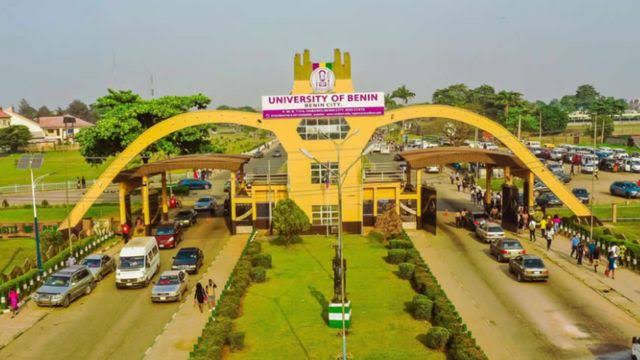
UNIBEN Partners with OpenBinacle to Preserve African Languages
……Collaboration Aims to Promote AI-Driven Language Preservation
The University of Benin (UNIBEN) has joined forces with OpenBinacle, a Nigerian-owned tech company, to advance the preservation and promotion of African languages through the use of Artificial Intelligence (AI) and Machine Translation (MT).
The partnership, formalized through a joint statement issued in Benin, focuses on standardizing and preserving indigenous languages across Nigeria and Africa. Vice-Chancellor of UNIBEN, Prof. Lilian Salami, praised the collaboration, highlighting its alignment with the university’s mission of being a globally recognized institution in research and education.
OpenBinacle’s CEO, Emmanuel Gabriel, emphasized that the initiative would foster the development of AI researchers and software developers, enhancing language translation technologies across the continent. The project aims to preserve over 2,000 African languages, providing job opportunities and technical training for students and youths.
Education
Sprezzatura Publishing Introduces Innovative Resource for Young Learners
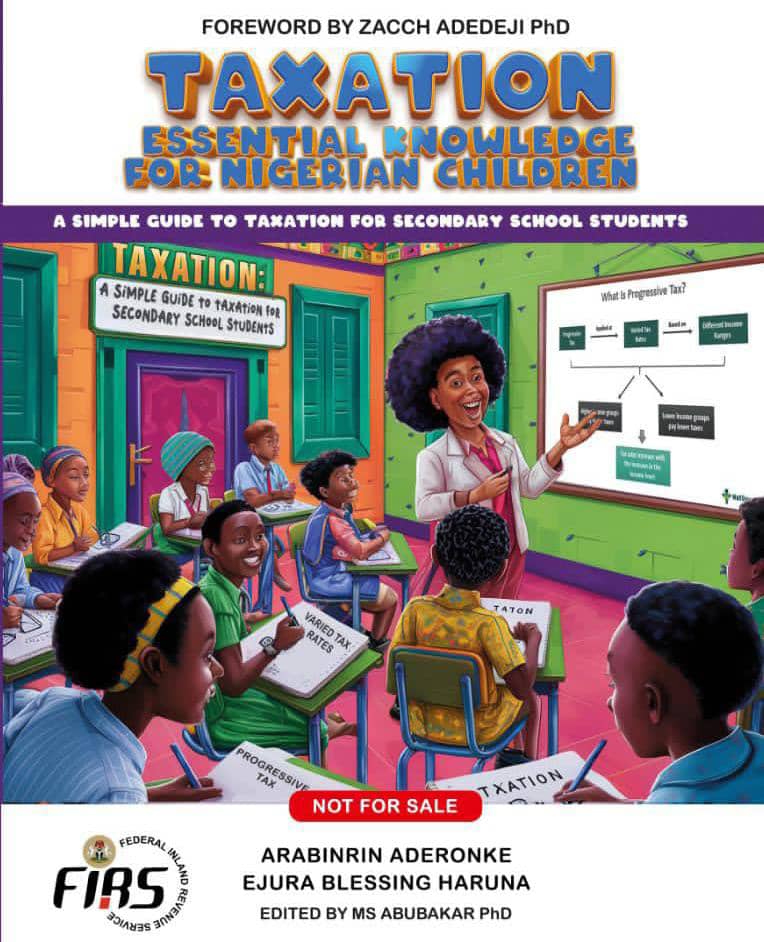
Sprezzatura Publishing Introduces Innovative Resource for Young Learners
By Halima Abdulkadiri
Sprezzatura Publishing Limited has launched a pioneering new book titled “Taxation: Essential Knowledge for Nigerian Children,” authored by Arabinrin Aderonke and Ejura Blessing Haruna. The 147-page guide is designed to make the complex topic of taxation accessible and engaging for young readers in Nigeria.
The book opens with a foreword by Dr. Zacch Adedeji, Chairman of the Federal Inland Revenue Service (FIRS), underscoring the importance of early tax education. Dr. Adedeji highlights the role of tax knowledge in shaping financially responsible citizens, emphasizing its relevance to the nation’s democratic future.
Structured into 13 chapters, the book covers various aspects of taxation, from its historical roots to the different types of taxes and the government’s role in tax collection. The authors utilize simple language and relatable examples, making the subject approachable for children and young adults.
To further enhance learning, the book includes interactive elements such as questions and activities at the end of each chapter. This method not only reinforces key concepts but also encourages readers to actively engage with the material, fostering a deeper understanding.
“Taxation: Essential Knowledge for Nigerian Children” is being recommended for educational institutions across Nigeria, offering a valuable resource to equip young minds with the knowledge needed for their financial futures.
Education
WAEC announce 215,267 Results Over Exam Malpractices, Records 73.79% Pass Rate
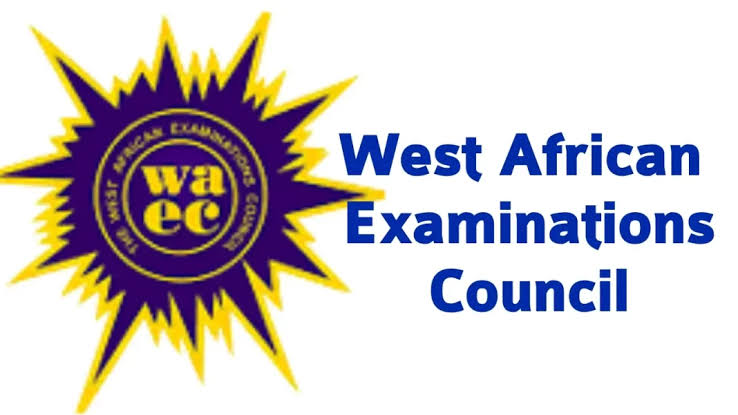
WAEC announce 215,267 Results Over Exam Malpractices, Records 73.79% Pass Rate
The West African Examinations Council (WAEC) announced the release of the 2024 West African Senior School Certificate Examination (WASSCE) results on Monday, revealing that 73.79% of the candidates achieved credit passes in at least five subjects. However, the results of 215,267 candidates, representing 11.92% of the 1,805,216 candidates who took the exam, have been withheld due to various cases of examination malpractice.
Dr. Amos Dangut, Head of WAEC Nigeria, stated that the 2024 exam was conducted over seven weeks, from April 30 to June 24, across Nigeria. He noted that 1,301,941 candidates, or 72.12%, obtained credits in five subjects, including English Language and Mathematics. Additionally, 93.39% of the candidates had their results fully processed and released, while 6.61% are still under processing.
Dangut attributed the withholding of results to incidents of malpractice, including the use of cell phones in examination halls and organized cheating in certain schools. The number of withheld results this year is 4.37% lower than in 2023, where 16.29% of results were withheld.
Investigations into the malpractice cases are ongoing, and decisions will be made by the appropriate WAEC committee. Candidates whose results have been withheld will be informed through their schools, and they have the option to appeal via the WAEC website.
Furthermore, Dangut highlighted that the results of candidates from states owing the council will not be released until the debts are settled. The WASSCE was conducted in four WAEC member countries: Nigeria, Gambia, Sierra Leone, and Liberia.
-

 Business1 year ago
Business1 year agoNew Rates: ‘I borrowed money to finance this business…’ – Petroleum Marketer cries out over Non-supply of products by the NNPCL
-

 Health5 months ago
Health5 months agoOnly 58,000 doctors renewed licence out of 130,000 registered doctors – MDCN
-

 Entertainment2 months ago
Entertainment2 months agoBBNaija Season 9: TAMI Duo Evicted After Low Vote Count
-
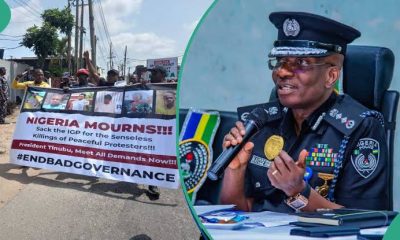
 Defence & Security1 month ago
Defence & Security1 month agoOrganisers Demand IGP’s Dismissal Over Fatal Protest Crackdown
-
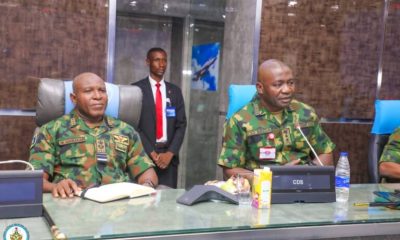
 Defence & Security1 month ago
Defence & Security1 month ago“Defence Chief Praises Strong Inter-Service Cooperation for Operational Successes”
-

 Business2 years ago
Business2 years agoNew Naira Notes: We Have No Information On The Supreme Court Ruling – CBN
-
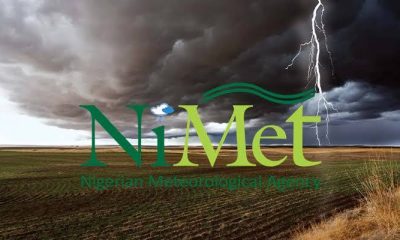
 Weather2 months ago
Weather2 months agoNiMet Forecasts 3 Days Thunderstorms, Rain Nationwide
-

 Opinion2 years ago
Opinion2 years agoAddressing Nigeria’s food security challenge through eco-friendly agriculture
